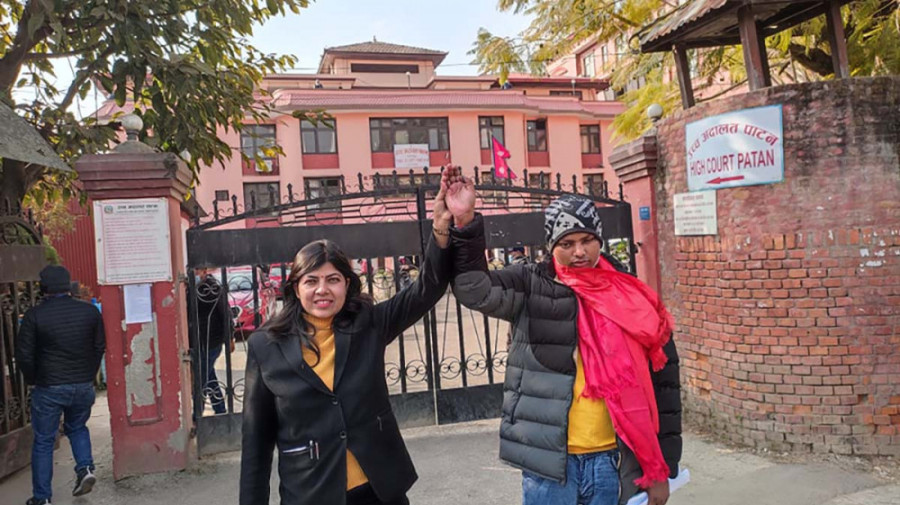National
Uma Shankar Rayabhar released on bail
The man from Bara was sent to jail 11 months ago after he was framed for tax evasion.
Post Report
Uma Shankar Rayabhar, who was in prison for a crime he was not apparently involved in, was released on Sunday after 11 months following a Supreme Court ruling on Friday.
He was released after posting Rs 25,000 in bail as directed by the court. He was sent to prison by the Patan High Court on March 3 after he failed to post Rs7.5 million in bail on charges of evading tax worth Rs 280 million.
“We are very happy that he has been released. We will go home tomorrow,” Sonam Devi, Rayabhar’s wife, told the Post. “I am thankful to everyone who supported us and ensured his release.”
As per the Supreme Court’s ruling, the Patan High Court had written to Nakkhu Prison to present Rayabhar in court from where he was released on bail.
A resident of Parwanipur in Bara district, Rayabhar, was brought to Kathmandu by one of his acquaintances Uma Shankar Sahani, when he was 16.
About six years ago, Sahani, along with Saroj Kumar Mishra of Godaita-8, Sarlahi who was living in Koteshwar, asked for Rayabhar’s citizenship certificate. The latter’s fingerprints were taken on many documents on the pretext of getting him a job.
Mishra then registered Blue Cross Traders and Jen Suppliers Pvt Ltd under Rayabhar’s name. Using the two companies, Sahani and Mishra evaded Rs280 million in taxes.
As the company was registered with Rayabhar’s document, a fraud charge was registered against him by the Revenue Investigation Department.
Rayabhar was accused of tax evasion amounting to Rs280 million.
While issuing the order on Friday, the Supreme Court annulled the decision of the Patan High Court to demand Rs7.5 million, citing the latter’s decision as unjustifiable.
The court has noted that Mishra was in charge of at least two companies and all their transactions. He enjoyed all the benefits even though Rayabhar was the owner of the companies on paper. Rayabhar was not found to have been directly involved in wrongdoing, noted the Supreme Court.




 8.67°C Kathmandu
8.67°C Kathmandu














